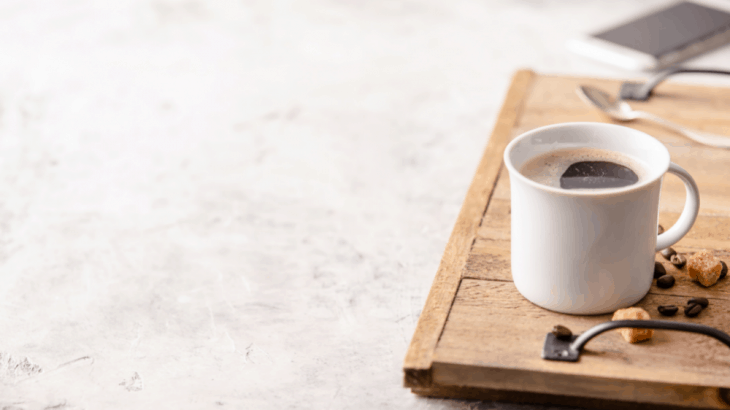
How to make your coffee more eco-friendly?
How to make your coffee more eco-friendly?
A lot of coffee is drunk every day. It's our way of waking up. Our little afternoon boost. Many consume it for comfort. We drink it to warm up in winter and cool down in summer. There are so many reasons to eat it and it’s so enjoyable!
Did you know that coffee, its production and consumption, has a real negative impact on the environment?
Produce it at home
Have you ever analyzed the processing process you do with your home-ground grains? Each of the popular devices have their advantages and disadvantages.
The filter coffee maker
It consumes little energy. The amount of coffee and water required is exactly what is needed. If we make an effort, the residual coffee and the filter can be composted. You can even go further by choosing a reusable filter or reusing the small grains to make a body exfoliant.
So far everything seems perfect. However, the problem with a coffee maker is the quantity of coffee it produces. Typically, users of this device produce 12 cups of coffee for a better brew and only drink part of it. Result, waste of grain, water and electricity.
If you opt for this type of device, be sure to only produce the quantity you will consume. If there is too much, you can always freeze it in an ice cube tray and use it for cold brew coffee!
Espresso
We like this type of infusion because it requires few coffee beans and an exact amount of water. Also, no filters needed. The coffee is brewed quickly and produces the desired number of cups.
On the other hand, this type of machine requires a large amount of electricity to operate.
Single pod coffee
They are often singled out, citing the consumption of plastic. But is this really the case? The pod consumes the right amount of water and a minimum and exact amount of coffee beans. In addition, its operation requires little energy.
I'm not telling you anything by telling you that the negative side is this famous little plastic cup. Although some companies are now making the effort to offer 100% recyclable plastic pods, the theory is much more encouraging than reality.
First, to be recyclable, once used, the cup must be emptied of its coffee and the aluminum film must also be removed. Which is not always done at home.
Then, even if the consumer takes the trouble to take the steps to make recycling possible, the fate of the cut also depends on the sorting centers. Unfortunately, the cut will all too often end up in a landfill.
Depending on the consumer's choice, some companies offer the possibility of returning used pods for recovery. Also, some other companies offer compostable cups. Now you need to know if this choice of coffee pleases your taste and your wallet!
Certifications
Coffee production has a great environmental impact, but also a great social impact. Choosing your coffee should be based not only on taste, but also on its certifications. Several are represented on the market.
Rainforest Alliance Certified
This certification ensures agricultural production that respects the environment. It is less expensive and less demanding than organic certifications. This certification more or less takes into account the social aspect of coffee agriculture.
Fairtrade
Fair trade certification mainly takes into account the social aspect. By opting for Fairtrade coffee, we ensure that the farmer works in good conditions, receives a fair salary and that agricultural advancements are made possible for more profitable and more ecological production.
Organic certifications
They are costly and severe for the farmer. On the other hand, they provide excellent environmental protection and sanction the use of chemical materials in the cultivation process. The price is worth it, if you ask me!
No purely eco-friendly solution, except…
In the end, we realize that there is no completely winning solution, except one. The stop! Being a good coffee consumer myself, I don't think this alternative is the most feasible. Rather, I believe that each consumer must find their own way of consuming their coffee more ecologically. Stop wasting it. Compost it. Reduce the quantity consumed. Buy it organic and fair trade. Use your own cup if it comes from a restaurant. Now it's up to you to think about it and make a difference.
At La Moisson, we offer you a large selection of coffee in bulk or in bags. All are organic and fair trade. We even have compostable pods! You are sure to find your new favorite morning partner there!
You can also make your choice online .
